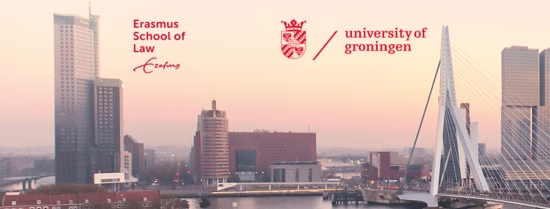Ecological destruction and climate change, rapid digital transformation and robotisation, rising economic inequality, public health for ageing societies vulnerable to pandemics, financial stability in face of globalised financial transactions, conflicts between legal orders and public interests in transnational exchanges, and the erosion of the core function of the rule of law in controlling and limiting power – these are some of the contemporary challenges that question well-established ideas of the relationship between the public and the private, between the society and the market, and between the sovereignty of the state and the power of non-state actors.
The withdrawal of the state – partly, because of conscious policy choices, partly, because of the inability of the nation-state to face transnational challenges – from defining, implementing, and enforcing public interests has led to an empowering of private actors to take over former state functions, which sometimes results in the accumulation of power with private actors surpassing that of states.
Whilst globalisation and the transfer of powers to private actors is not likely to be reversible, the importance of preserving public interests remains. A well-functioning legal system that is committed to respect, safeguard and effectively implement public interests is essential for the prosperity and wellbeing of citizens. This requires strong faculties of law with excellent scholars equipped to deal with societal challenges. The legal discipline of the 21st century is also repositioning itself within the academic environment and in its relationship to other disciplines. Mindful of these societal and academic developments, the Dutch Sector Plan for Law 2019-2024 of the Dutch Ministry of Education, Culture and Research facilitates the repositioning of law in society with cross-faculty partnerships. The partnership between Erasmus School of Law and the Faculty of Law of Groningen University focuses on the ‘Rebalancing of Public Interests in Private Relationships’.
This special issue of the Erasmus Law Review is dedicated to the emergence of this research line and invites academics from different legal and empirical disciplines to reflect on questions such as what defines public interests and what distinguishes them from private interests; what consequences are attached to the qualification of a particular interest to be a public one; whether there is a hierarchy between public interests and what the consequences of such a hierarchy are; which roles private actors play in creating, promoting, implementing and enforcing public interests, including those for which the government has assumed final responsibility; how the power of private actors can be made subject to public interests in a globalised and digitalised world; and how we can redefine, if at all, the line that is traditionally dividing public from private law. What do the major challenges of these times such as climate change, globalisation, digitalisation, health care dealing with ageing societies and pandemics, and global financial stability mean for this public-private challenge?
We welcome contributions from various legal areas, such as (international and national) private law, (international and national) public law, EU law, administrative law, competition law, and tax law; as well as from disciplines such as criminology, law and economics, empirical legal studies, and legal theory. With this special issue, we hope to get a multi-disciplinary overview on the public-private challenges for the legal discipline in the 21st century.
If you are interested in contributing, please send in a short abstract of the paper you may write with an indication of the structure of the paper (about 250-500 words). Also please add a short 1-2 pages CV. Please send your abstract to sectorplan@law.eur.nl
We will select which submitted abstracts can be worked out in a full paper for the special issue. Full papers can be 8,000-12,000 words in length (including footnotes). Please see Erasmus Law Review Author Guidelines for further instructions. Two independent reviewers will be assigned to each paper.
The timeline is as follows:
- Please send in your abstract by: 1 September 2022
- Decision about which abstracts can be developed into full papers by: 15 September 2022
- Full papers ready for peer review by: 15 November 2022
- Reviews received by: 15 January 2023
- Revision / final papers are due: 28 February 2023
- Publication of issue aimed for: April 2023
Special issue editors: René Repasi, Professor of Public and Private Interests, Lieselot Bisschop, Professor of Public and Private Interests, Koen Swinnen, Professor of Private Law and Public and Private Interests & Aurelia Colombi Ciacchi, Groningen Sector Plan chair on Public and Private Interests.

